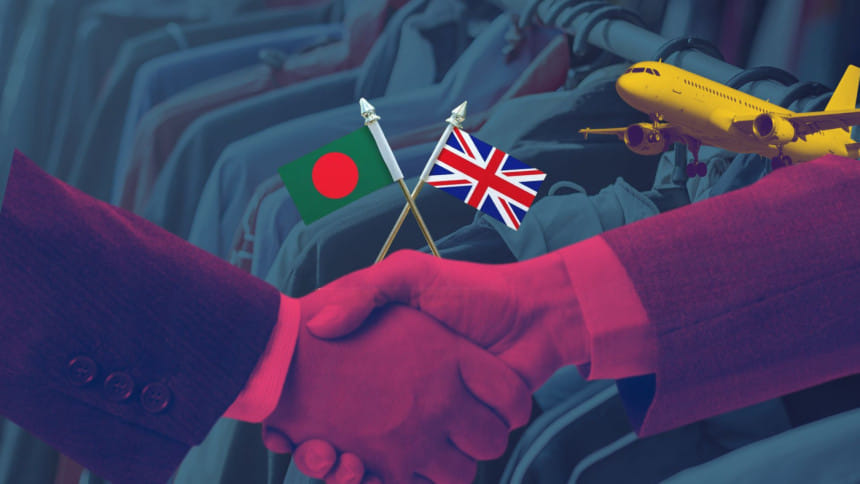UK keeps duty-free access for Bangladeshi goods

The UK government has updated its trade preference scheme—the Developing Countries Trading Scheme (DCTS)—that will enable Bangladesh to continue to benefit from zero tariffs on products like garments and electronics.
Upgrades include simplified rules of origin, enabling more goods from countries like Nigeria, Sri Lanka, and the Philippines to enter the UK tariff-free—even when using components from across Asia and Africa, said a statement from the UK's Department for Business and Trade (DBT).
They also ensure countries such as Bangladesh and Cambodia continue to benefit from zero tariffs on products like garments and electronics, it added.
"This will open up new commercial opportunities for UK businesses to build resilient supply chains, invest in emerging markets, and tap into fast-growing economies," said the statement issued last week.
Bangladesh, along with 64 countries, enjoys reduced or zero tariffs on thousands of products, and the UK said new measures will make it easier for developing countries to trade, supporting jobs and economic growth both in the UK and overseas.
The new trade measures were unveiled on July 10 before British business leaders and ambassadors from around the world at a joint DBT and Foreign, Commonwealth & Development Office (FCDO) reception in London.
"These new rules will make it easier for developing countries to trade more closely with the UK. This is good for their economies and for UK consumers and businesses," said Jenny Chapman, Minister of State for International Development.
The DBT said the DCTS allows some of the world's poorest countries to export to the UK duty- and quota-free, with over £16 billion in UK imports benefiting from tariff savings since its launch in June 2023.
"No country has ever lifted itself out of poverty without trading with its neighbours. Over recent decades, trade has been an essential ingredient in lifting hundreds of millions of people out of poverty around the globe," said Douglas Alexander, Minister of State for Trade Policy.
Monique Leeuwenburgh, Director of Sourcing, Marks & Spencer PLC, said, "This change will enable us to maintain our longstanding and trusted relationships with our key partners in Bangladesh, to deliver the same great quality clothing & home products at great value for our customers."
Eoin Tonge, Interim Chief Executive at Primark, said, "This will help us to maintain our existing supply chain strategy in our key sourcing markets in Asia, such as Bangladesh and Cambodia."

 For all latest news, follow The Daily Star's Google News channel.
For all latest news, follow The Daily Star's Google News channel. 



Comments